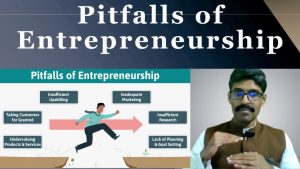The Insider Guide to Careers
Insider information, secrets and tips about getting hired and building careers. For employees and job candidates.
The “imposter syndrome” is a question that nobody will ask you. It is a question you ask yourself. It is not an issue tied to the outside world; it is linked to your sense of self-worth and estimation. I have been in HR for a long time and had the chance to work for the most senior people right from day one on the job. Here are my learnings:
1) Everybody is a born imposter. There is nobody who is a born leader. Leadership skills (especially in an artificial arena called a company) are learned over time and by getting opportunities to grow further. Every single person starts from the bottom and works their career path upward. In an ideal scenario, you will be doing much of your manager’s job before you get promoted to your manager’s position. You will never get a promotion where 100% of the job is alien to you.
2) Before any promotion or new hire, there is always an evaluation by an external committee. They have to be satisfied that you can do the job properly. While it is possible to fake some of the answers, it is generally impossible to completely fool even one person. When there is a committee, it is even more impossible to fool everyone. So, relax. If you are in an enhanced position after a promotion or new hire, you indeed deserve it.
3) Companies take bets with new people all the time. Sometimes, you will be in a new role in a new sector. However, management expects you to learn over time. So, relax and display enthusiasm to learn on the job. Ideally, every company gives a 2–3 month runway for you to learn on the job before immersing you into the deep end of the job. This timeline is typical for all roles below a Vice President (VP). So, make every mistake possible in that short duration and keep learning furiously every day.
4) Despite your best efforts, the role could turn out to be a failure. It is not always about you. Sometimes, companies do not invest enough time building the right resources and support structures to help employees. It is often the fault of the company when things go wrong. This failure is something nobody in the company will admit, but HR can easily observe. So, if you have a friend in HR, talk extensively about new employee resources. Sometimes, managers do not know much about learning and development resources. This conversation with HR is essential.
5) Seek a new company if the role does not work out despite your best efforts. There are enough companies in the world that even if you spend one hour working in a company and change 24 companies in a day, you will not be able to work in all the companies in your entire working career.
Forget about whether you begin as an imposter or if others are imposters. These are meaningless meanderings of the mind. Instead, ask you if you will learn something new. It is the bane of modern society that says that everything in your life should always be under your control. This expectation is impossible – it demands too much from every employee and dooms everyone to failure.
Do not look at life as success and failure. It is about learning and unlearning. Look at life as a learning opportunity in the long term. Even failures happen for a purpose; they teach you something about life that you did not know earlier. You will be a better person, irrespective of whether the external world calls you a success or failure.
There is a fantastic Eastern idea called Dharma. Defining Dharma is difficult; it combines wanting to learn something new, having enthusiasm, and positively impacting others. If all these factors match, you are at a cosmic intersection of all personal and universal expectations. It may sound mystical, but it is also very commonsensical. Do not target nonsense ideas like Ikigai. Ikigai is short-sighted and will never work in the long term. Target Dharma instead, and you will never wonder about imposter syndrome. Dharma is a profoundly deep Hindu, Zen, and Buddhist thought.
Do not envision negative thoughts about yourself and about how you will perform in the future. Nobody in the world knows the future. It is unknown. Hence, work hard and give it your all. Forget about future success (which has not happened) or past failures (which have stopped existing). This path is the only path to success, not just in your personal life but also in your professional life.
For more such articles, also follow my Substack and Careerbolt channels.




Overcoming impostor syndrome required a conscious effort to change my narrative. Initially, I struggled to acknowledge my achievements, always attributing them to luck or external factors. However, by actively seeking feedback and reflecting on my successes, I began to own my accomplishments. I found strength in journaling, where I documented positive affirmations and milestones, slowly building a foundation of self-belief. This shift in mindset was transformative, allowing me to view challenges as opportunities for growth rather than as evidence of inadequacy.
Thanks for sharing your experiences. A fantastic idea to keep a log of positive experiences.You said it best, it is eventually a mindset transformation.